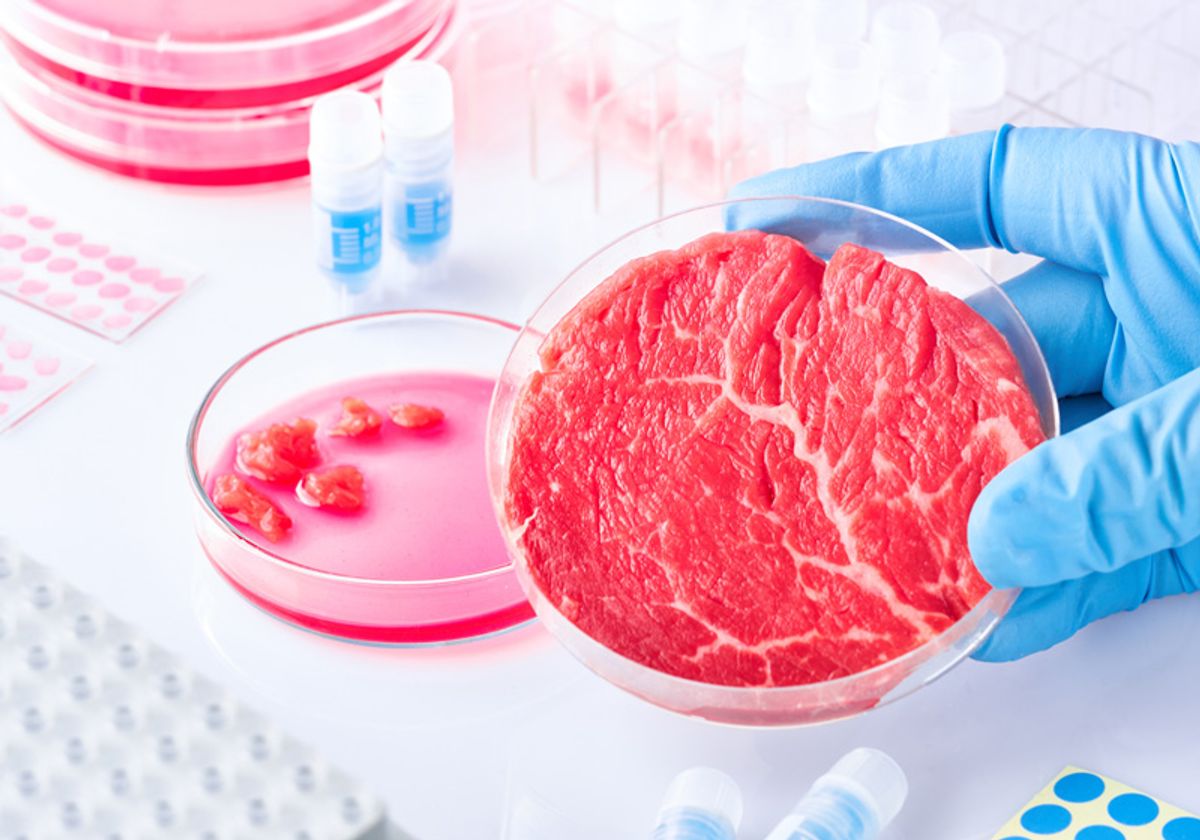South Korean scientists have achieved a breakthrough in the realm of alternative protein sources by successfully growing beef cells in rice. This innovative approach holds promise for addressing the growing demand for sustainable and ethical protein alternatives while mitigating the environmental impact of traditional meat production.
The groundbreaking research, conducted by a team of scientists from South Korea’s Institute of Science and Technology (KAIST), marks a significant milestone in the field of cellular agriculture. By harnessing cutting-edge biotechnology techniques, the researchers were able to cultivate bovine cells within the cellular structure of rice grains, effectively transforming the grains into a protein-rich matrix.

Source: The Scientist
This novel method offers several advantages over conventional meat production practices. Unlike traditional livestock farming, which is associated with deforestation, greenhouse gas emissions, and animal welfare concerns, cell-based meat production requires significantly fewer resources and generates lower carbon emissions. By utilizing plant-based substrates such as rice, scientists can further reduce the environmental footprint of cultured meat production and promote sustainable food systems.
SOURCE:- INDIA TODAY
Furthermore, the development of cell-based meat technologies holds promise for addressing global food security challenges. As the world’s population continues to grow, the demand for protein is expected to increase substantially, placing pressure on finite land and water resources. By leveraging cellular agriculture to produce meat from cultured cells, researchers can potentially alleviate the strain on agricultural land and feed more people with fewer inputs.
The use of rice as a substrate for cell-based meat production offers unique advantages. Rice is a widely cultivated crop with a high nutritional value, making it an ideal candidate for supporting the growth and proliferation of animal cells. Moreover, rice grains provide a cost-effective and readily available medium for scaling up production, offering potential cost savings and scalability for commercial applications.
While the technology is still in its early stages, the successful cultivation of beef cells in rice represents a significant step forward in the development of alternative protein sources. As researchers continue to refine the process and improve efficiency, cell-based meats have the potential to become a mainstream protein option, offering consumers a sustainable and ethical alternative to conventional meat products.
However, challenges remain in scaling up production and reducing costs to make cell-based meats competitive with traditional animal-derived products. Additionally, regulatory frameworks governing the safety and labeling of cell-based meats will need to be established to ensure consumer confidence and market acceptance.
Despite these challenges, the South Korean scientists’ achievement demonstrates the transformative potential of cellular agriculture in revolutionizing the way we produce and consume meat. With continued innovation and investment, cell-based meats have the opportunity to reshape the global food system, offering a sustainable and ethical solution to the challenges of feeding a growing population while preserving the health of the planet.
Share your views in the comments

